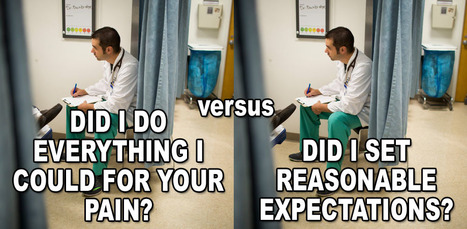The questionnaire arrives in the mail a few days after a patient’s discharge from the hospital.
Did doctors treat you respectfully? Was your bathroom kept clean?
Most of the queries seem mundane, but a backlash has been growing against one: Did staff members do everything they could for your pain?
As the country struggles to control the epidemic of overdoses and deaths from prescription opioids, many medical professionals and policy makers are challenging the wisdom of asking patients to rate how hospital employees manage pain. Doing so, they argue, creates a dangerous incentive for doctors to prescribe powerful and potentially addictive painkillers.
Dr. Jerome M. Adams, the Indiana health commissioner, said that in conversations around the state, doctors frequently told him, “I’m scared to not give out those opioids because my patient satisfaction scores will come back poorly.”
Under the Affordable Care Act, patient ratings grew even more important: In 2013, scores on an inpatient survey required by the federal government became tied to hospitals’ Medicare reimbursement. But after waves of angry petitions and proposed bills to cut the pain questions, the Obama administration said last month that it would remove them, at least temporarily, from the reimbursement formula.
Doctors and other providers say part of the problem is that because pain is highly individualized and difficult to measure objectively, a survey question is a poor instrument for judging medical competence. Moreover, many experts add, patients have unrealistic expectations: They equate good treatment with the complete eradication of pain and assume they will be handed a prescription for fast relief.
In a culture increasingly influenced by consumer ratings, many doctors say such questions pressure them to substitute what a patient wants for their judgment about what the patient needs.
“Part of my paycheck comes from satisfaction scores,” said Dr. Thomas E. Benzoni, an emergency medicine physician at three hospitals in Des Moines. “So if doctors are being measured on whether the patient wants pain relief,” he added, that is what they may be inclined to provide.
Many experts, including physicians and patient advocates, agree that patients’ views should carry weight. But if surveys are to address pain management, other questions might be more useful in reinforcing good medical practice, they say.
Dr. Adams, Indiana’s health commissioner and an anesthesiologist, said questions about pain should ask whether staff members discussed the risks linked to painkillers such as opioids. Such exchanges, he said, could help temper a patient’s assumption that pain can be eliminated.
His suggestion: “Did staff set reasonable expectations for what your pain should be?”
Via Pharma Guy



 Your new post is loading...
Your new post is loading...








